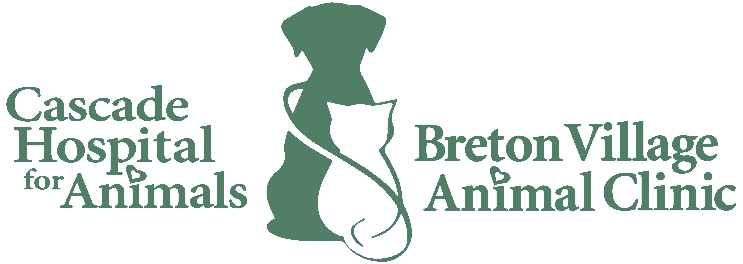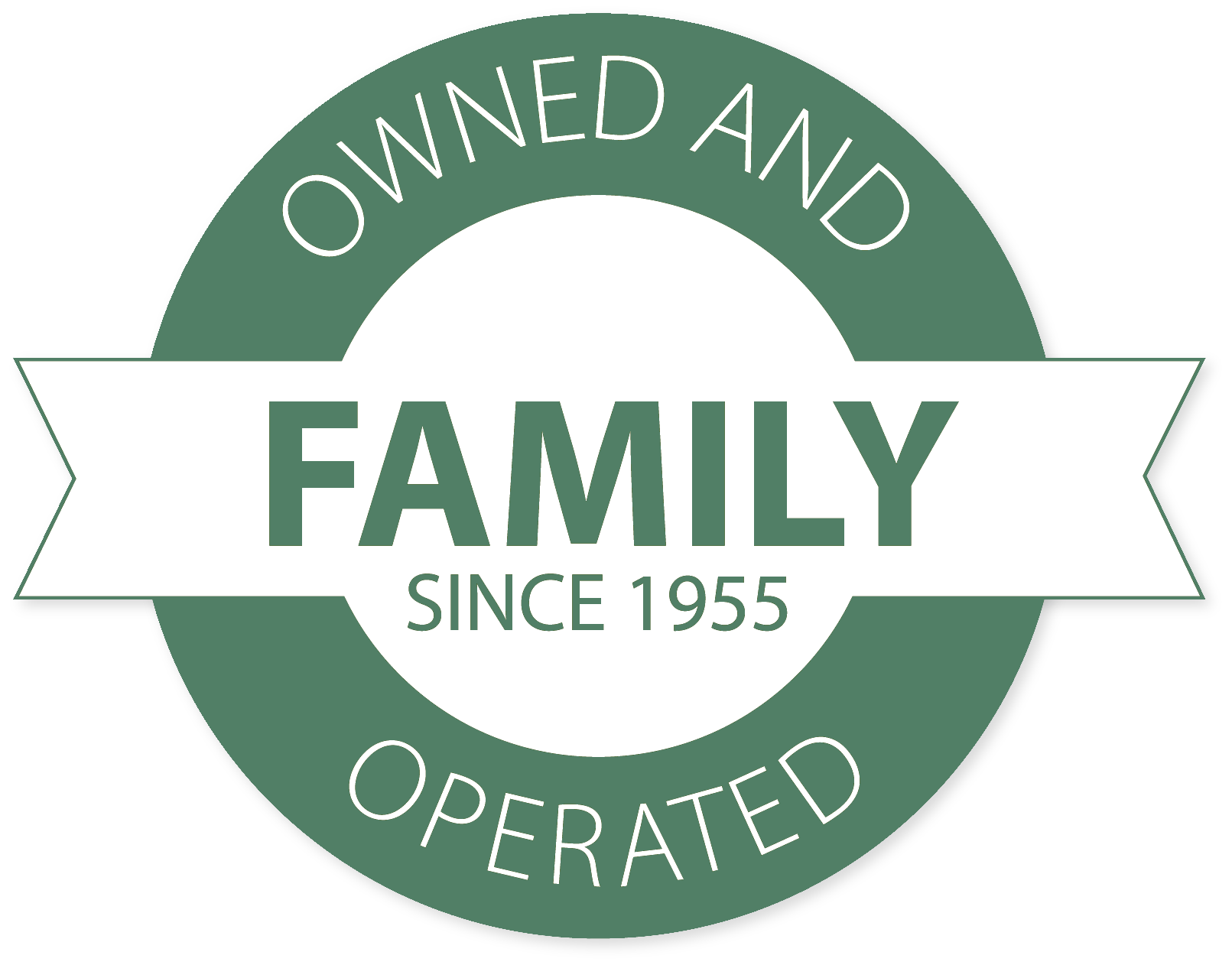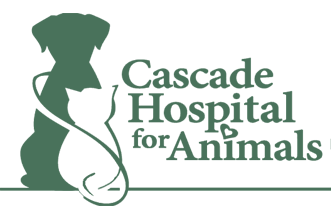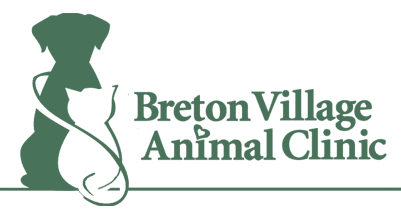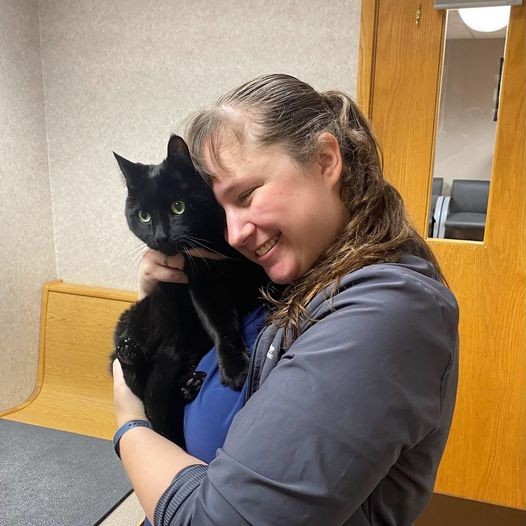
The importance of dental health is easy to see
As veterinary professionals, we can never emphasize enough the importance of regular dental care for dogs and cats. There’s a reason the entire month of February is dedicated to pet dental health! Recently, a CHFA staff member saw in living color the importance of maintaining healthy mouths for our pets.
Sara was formerly a veterinary assistant who recently became a Licensed Veterinary Nurse after completing her degree. “I had to grow bacteria for my externship for veterinary nursing school and I used a sample from a dog's foot to grow bacteria,” she said. “I had extra plates and I decided to use the remaining plates I had to grow the bacteria from different dental grades and show people what's growing in their dog's mouths.”
Sara’s experiment used culture plates streaked with material from the mouths of dogs with different degrees or grades of dental disease. She incubated them for 48 hours and then pulled the material that grew off and made slides that she looked at under the microscope.
She expected interesting results and wasn’t disappointed. It was a stark visual representation of why brushing pets’ teeth and having regular dental cleanings is so important. “With the grade three dog, I had growth on my plates after six hours.”
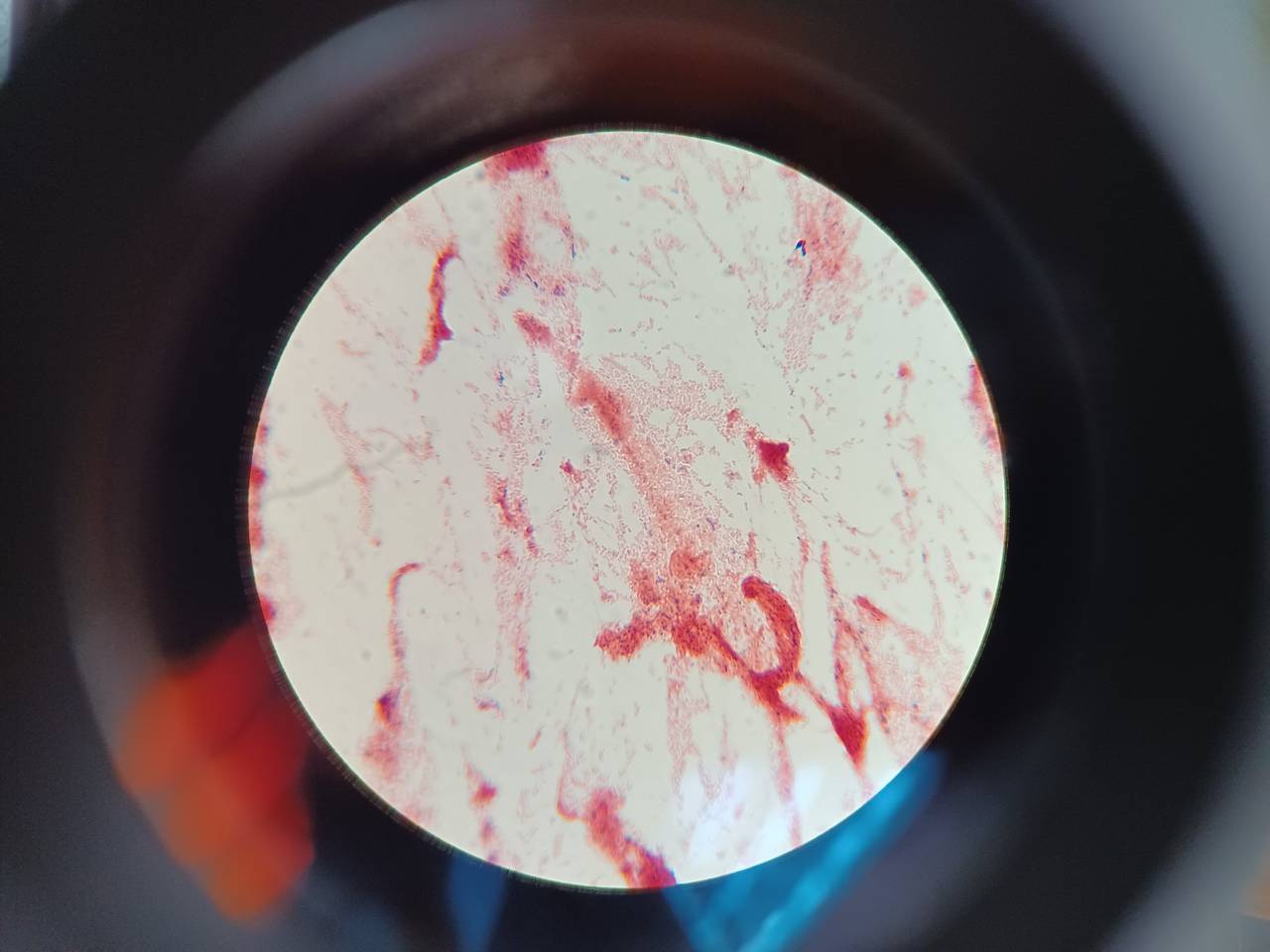
Bacteria grown from the mouth of a dog with grade 1 dental disease
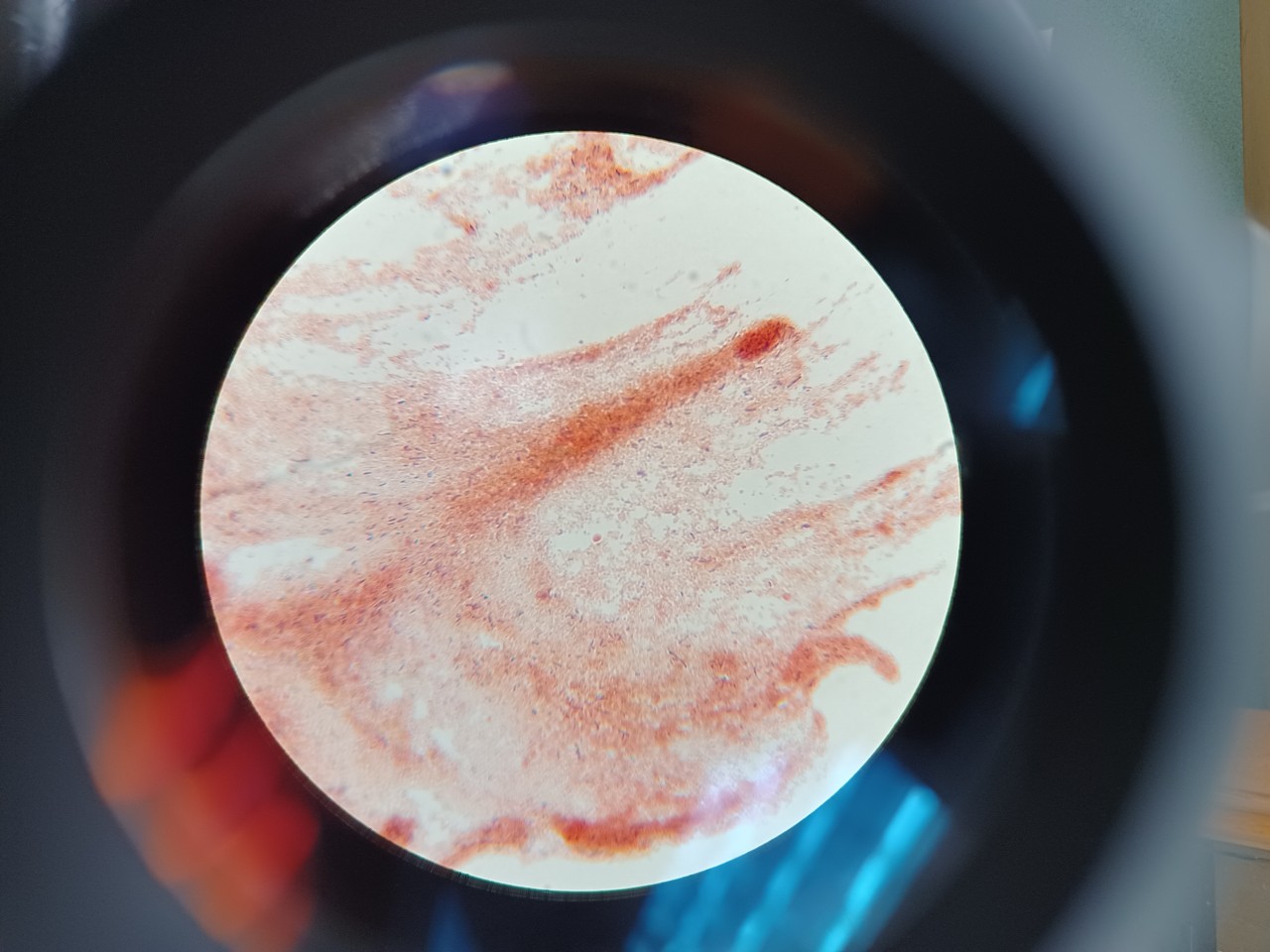
Bacteria grown from the mouth of a dog with grade 2 dental disease
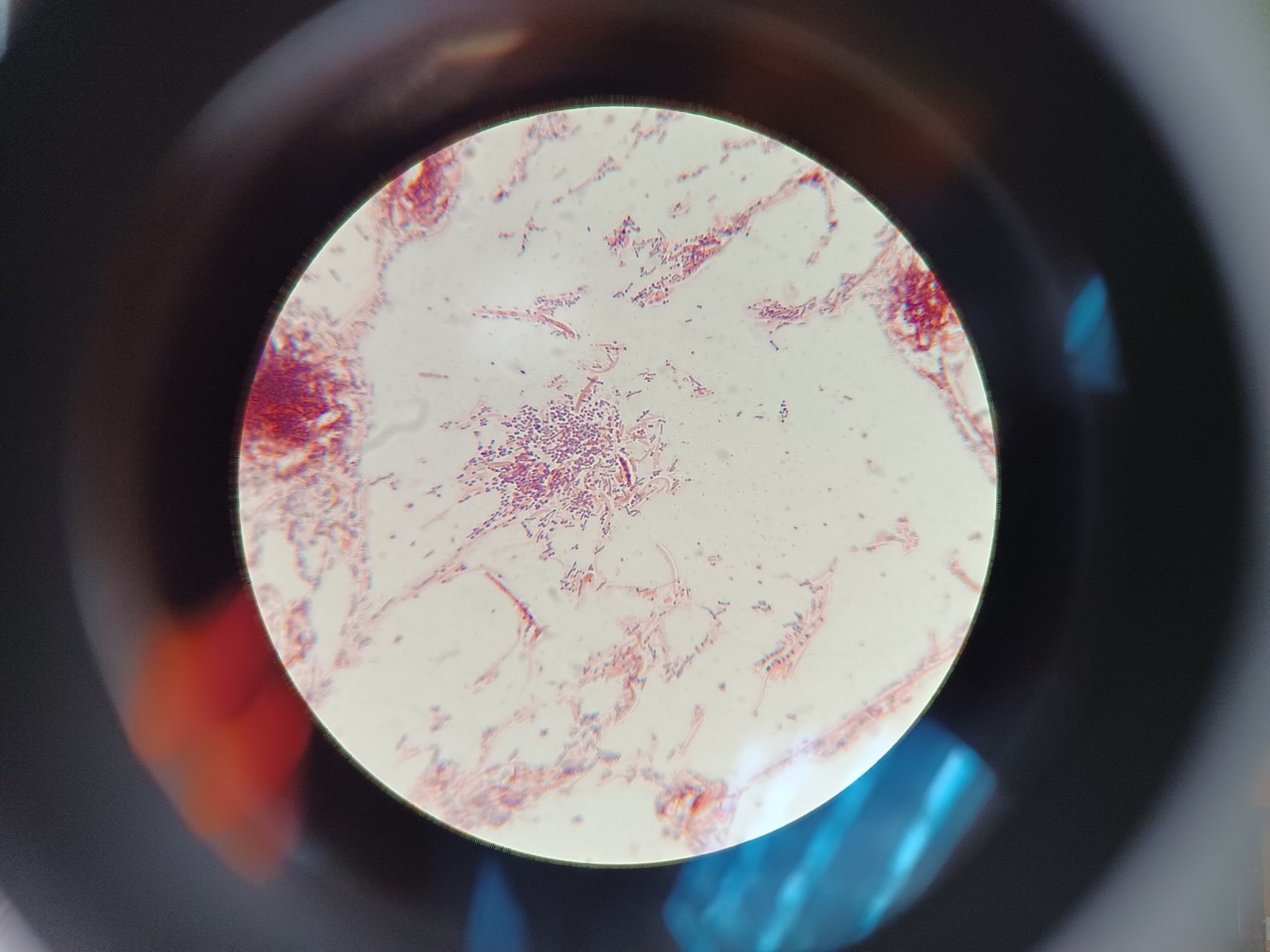
Bacteria grown from the mouth of a dog with grade 3 dental disease
Cleaner smiles
Regular daily tooth brushing at home for dogs or the use of dental chews and treats helps to keep the bacteria at bay. Just as important, however, are annual dental cleanings, which are one of Sara’s responsibilities as a veterinary nurse. After anesthetizing the pet and hooking them up to monitoring equipment, the hard work begins. She carefully flakes the tartar off the pet’s teeth with hand tools and an ultrasonic scaler, then smoothes and polishes the teeth with toothpaste. Often, with pets who have more extensive dental disease, the process involves removal of diseased teeth.
“Some of these cats or little dogs, their teeth start to develop pockets around them and we can see that on x-ray,” said Sara. “You just see that there's this little dark gap between the gum tissue and teeth, so they're just barely hanging on in there. Sometimes the bacteria that I grew can get in those little areas, and then if they set up shop long enough, they potentially cause an abscess.”
Healthy mouths, healthy pets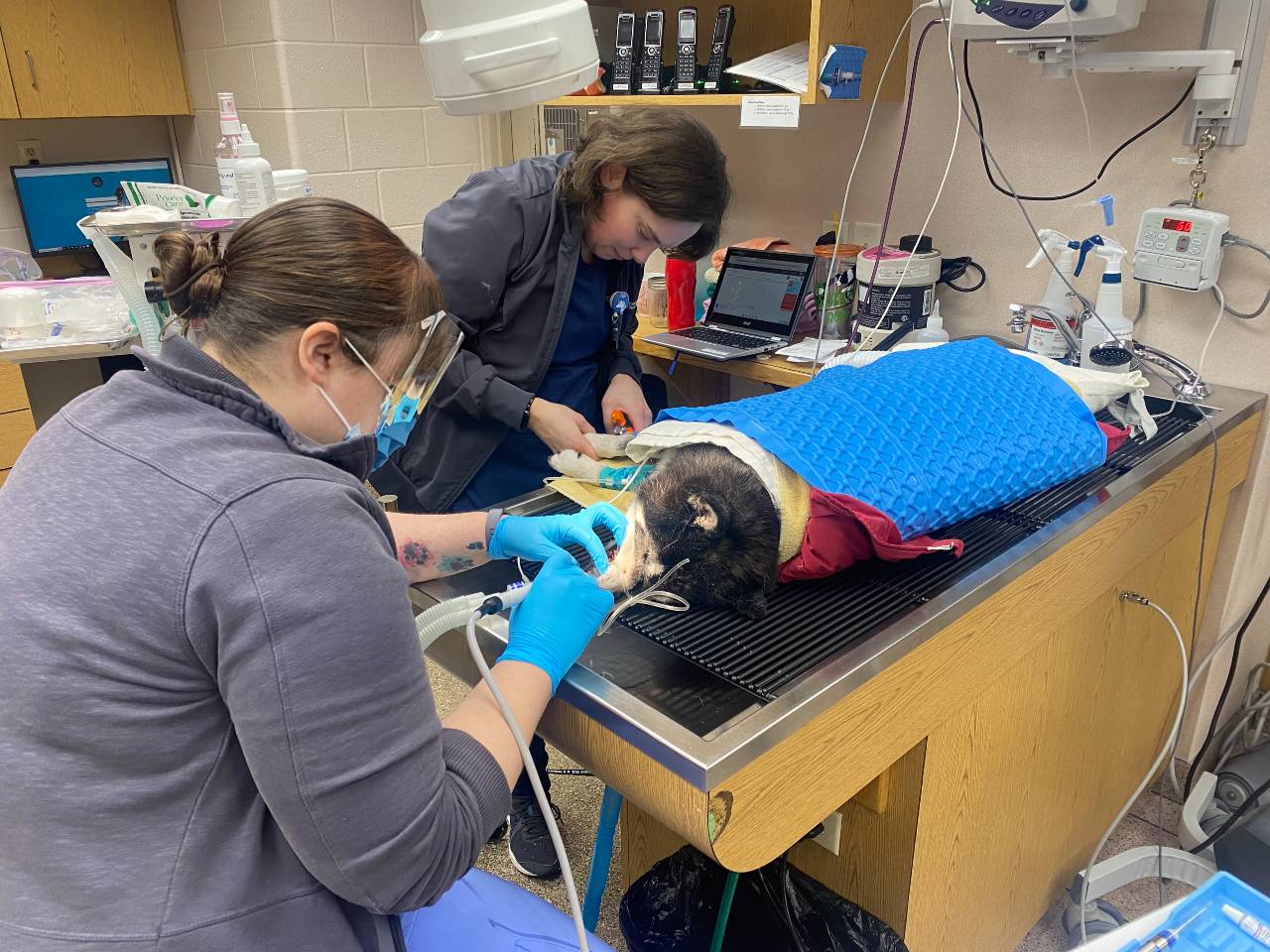 RVN Sara B. cleaning the patient's teeth and VA Sara F. performing a nail trim (nail trims are offered complimentary with the dental).
RVN Sara B. cleaning the patient's teeth and VA Sara F. performing a nail trim (nail trims are offered complimentary with the dental).
Other issues become evident before the pet comes in for a cleaning. “Sometimes you'll see a problem with the upper fourth premolar, one of the bigger teeth in the mouth with three roots attached to it just below their eye,” said Sara. “If the bacteria gets in there and that abscesses, sometimes you'll see a swelling develop right under the eye, and sometimes it ends up breaking open and people will see that, and that's what leads them to bring the pet in. But it turns out it's due to dental disease that causes that.”
Prevention goes a long way in saving pets from discomfort. “If their mouth is sore and they've got teeth in there that are moving around and they're uncomfortable, a lot of times they'll either slow down their eating or sometimes they'll stop eating altogether. Sometimes they become a little defensive too, so if their mouth is sore, sometimes their personality changes a little bit where they don't want to be petted on their face nearly as much.” Removing a problem tooth is costly but far better for a pet’s overall wellbeing in the long run.
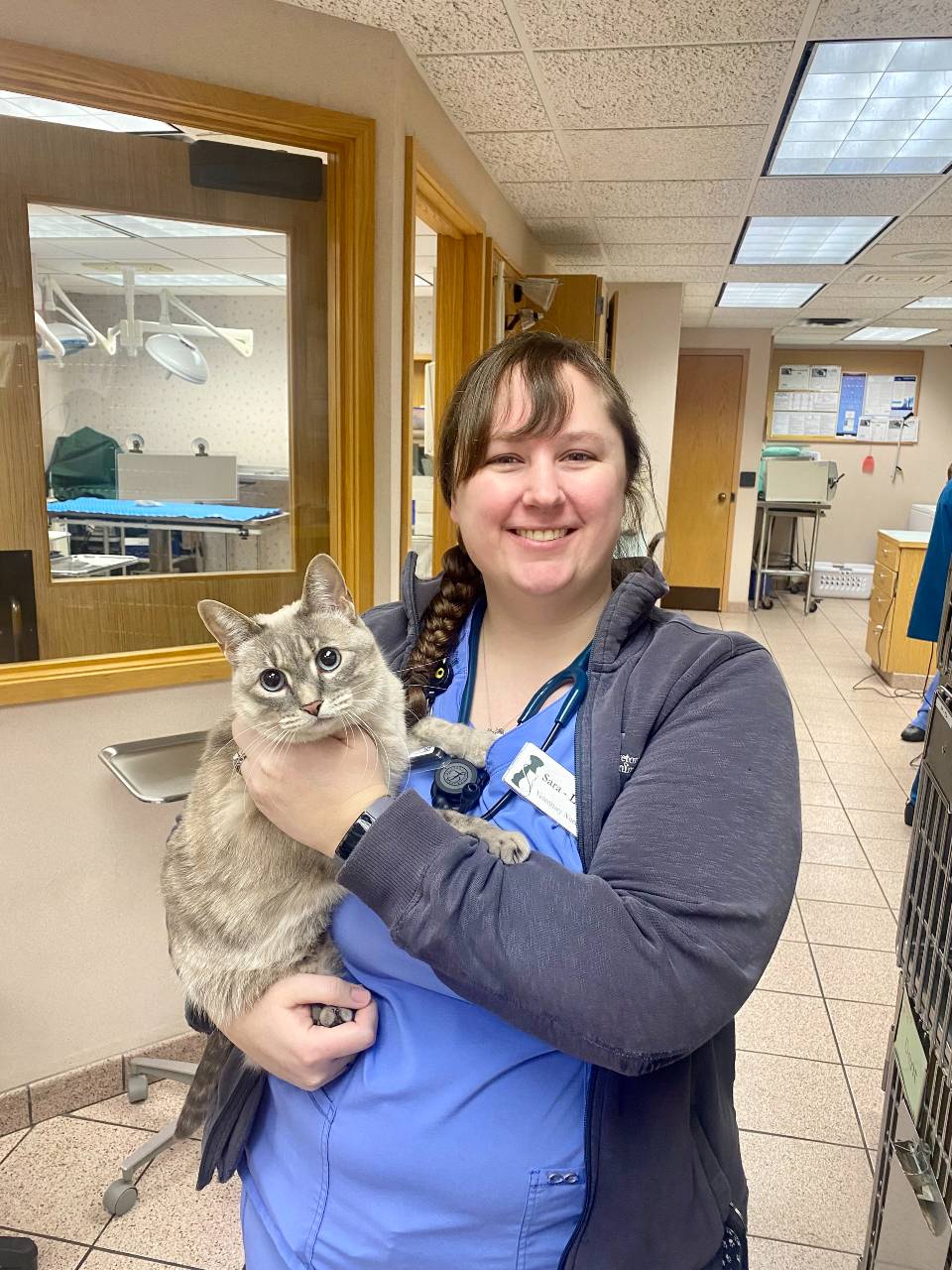 Dental health is important for cats.Cats need dental care, too
Dental health is important for cats.Cats need dental care, too
Maintaining a cat’s dental health on a regular basis at home might be more difficult than it is for a dog. They are far less likely to let anyone take a look into their mouths or brush their teeth. “But doing a yearly dental on a cat goes a long, long way,” said Sara. “They have different bacteria in their mouth than dogs do.” Cats can develop painful conditions such as stomatitis or resorptive lesions. According to CHFA's Dr. Ashley Solnik, “These conditions, if not addressed quickly and aggressively, can lead to a lifetime of discomfort for cats and then we worry about this pain leading to other health issues such as inappetence and weight loss or behavioral issues such as inappropriate urination. This bacteria can cause severe inflammation of the gum tissue and actually starts eating away at the bone and enamel of the teeth. If you suspect an issue with your cat's oral health or your veterinarian recommends a dental procedure it is best to address those concerns as soon as possible.”
An ounce of prevention
“I love doing dentals,” said Sara. “I think dentals are my favorite part of the whole job because I feel like you can make the most immediate difference in a dog’s or a cat's life just by cleaning their teeth. Because sometimes if you leave the bacteria in there long enough and their mouth is bad enough, it can cause heart disease.” Dr. Solnik agrees and encourages her clients to keep up regular dental cleanings. “Dentistry is one of the best forms of preventative medicine we can provide for our patients. Just like in people, dental disease and the bacteria that builds up in our mouth can have life-long effects on the rest of the body. If we can look for and address any signs of dental disease early on we can extend a pet’s lifespan and keep them healthier and happier for much longer,” she said.
With the bacteria experiment, Sara said, “I hope to show people how important prevention is. Maybe being able to see under the microscope exactly what's going on with their pet's teeth, I think they'll think a little more about getting a dental done. There is an up-front cost. But in the long term, caring for their teeth is caring for the whole pet. A healthy mouth is a healthy pet.”
Call and schedule your pet’s dental cleaning today! For the month of March, we’re offering a $25 discount on cleanings!
